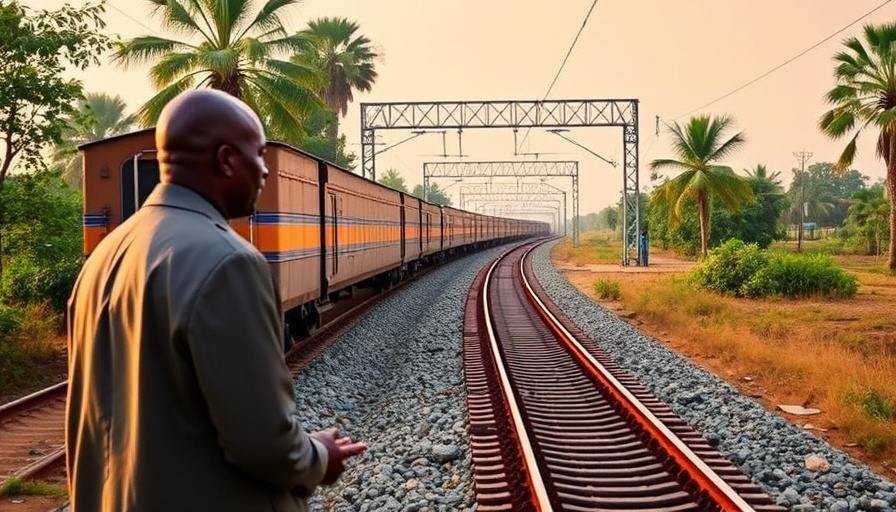
Shabaab's Recent Victory: Implications for Regional Stability
The capture of a central Somali town by the militant group Shabaab marks a significant development in the region's ongoing struggle with extremism. This event, reported by multiple sources, underscores the precarious balance of power within Somalia and raises concerns about the effectiveness of current governmental and international responses to such insurgent threats.
The Economic Impact on Somalia
As Shabaab increases its territorial control, the local economy faces potential destabilization. The group's presence often leads to heightened insecurity, which can dissuade both domestic and foreign investment. Business leaders must consider how this conflict might hinder growth opportunities and affect their strategic plans in the region.
Geopolitical Significance in Africa’s Economic Landscape
This latest development aligns with broader trends impacting Africa’s geopolitical scene, particularly regarding foreign relations and economic engagement. Enhanced instability in Somalia could prompt shifts in how neighboring countries, including Kenya and Ethiopia, approach trade and security partnerships. Policymakers and think tanks should analyze these potential shifts to anticipate their effects on regional markets and global trade dynamics.
Future Predictions: A Call for Strategic Action
The evolving situation around Shabaab’s influence calls for urgent reassessments of strategies employed by both African nations and international partners. The international community’s role in supporting effective governance, economic development, and counterinsurgency efforts will be crucial in restoring stability in Somalia and, by extension, the Horn of Africa. Understanding these dynamics will empower stakeholders to navigate the complex political and economic environment in the coming years.
Conclusion: Why Understanding this Context Matters
The developments in Somalia are not just a national issue but a regional one with far-reaching implications. As we follow the impact of insurgents on governance and economic interactions in Africa, it is crucial for investors, policymakers, and researchers to stay informed about these changes. The ongoing challenges and opportunities in Somalia reflect broader themes in African politics and their role in the global economy.
 Add Row
Add Row  Add
Add 


Write A Comment